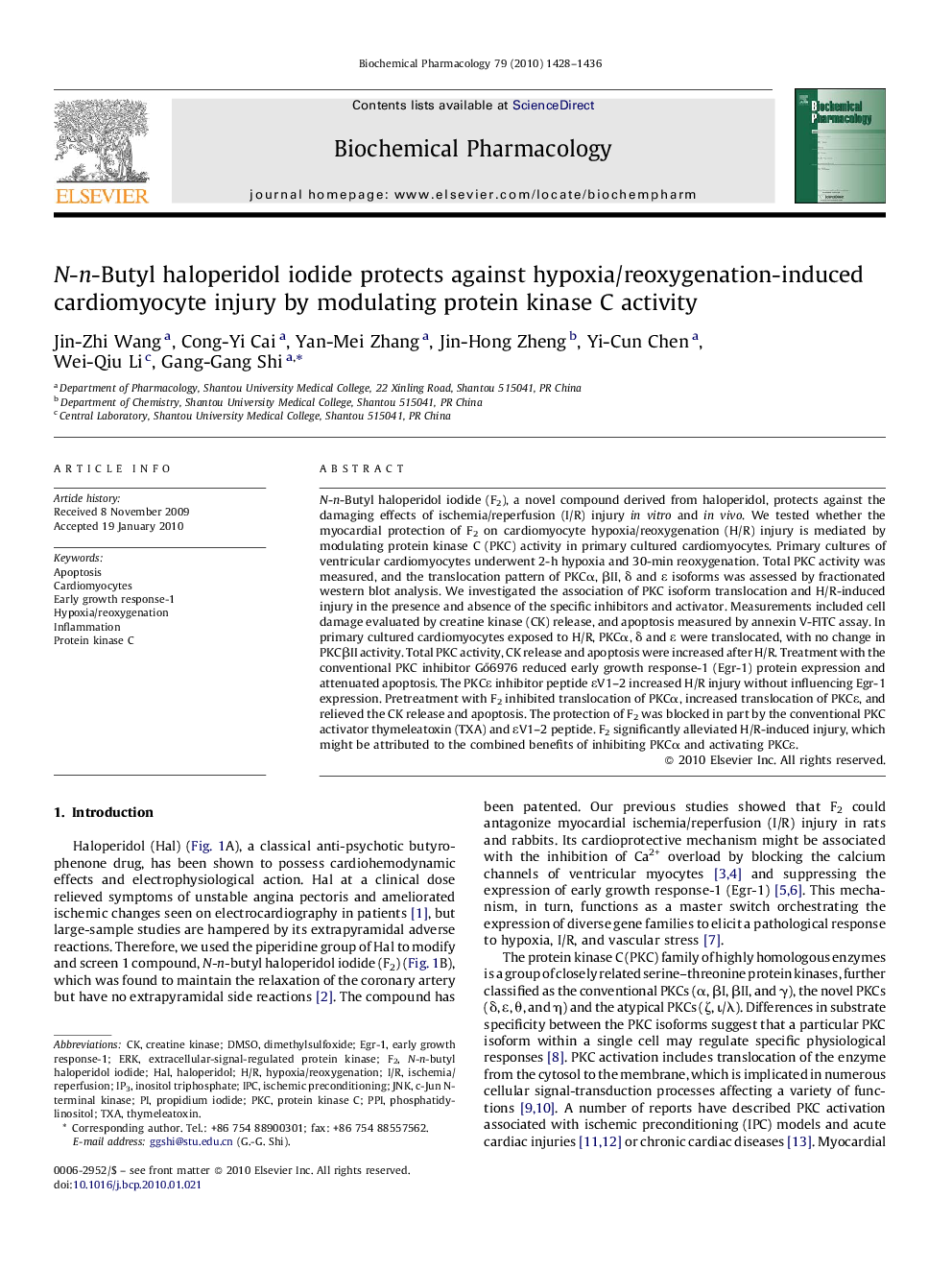| Article ID | Journal | Published Year | Pages | File Type |
|---|---|---|---|---|
| 2513648 | Biochemical Pharmacology | 2010 | 9 Pages |
N-n-Butyl haloperidol iodide (F2), a novel compound derived from haloperidol, protects against the damaging effects of ischemia/reperfusion (I/R) injury in vitro and in vivo. We tested whether the myocardial protection of F2 on cardiomyocyte hypoxia/reoxygenation (H/R) injury is mediated by modulating protein kinase C (PKC) activity in primary cultured cardiomyocytes. Primary cultures of ventricular cardiomyocytes underwent 2-h hypoxia and 30-min reoxygenation. Total PKC activity was measured, and the translocation pattern of PKCα, βII, δ and ɛ isoforms was assessed by fractionated western blot analysis. We investigated the association of PKC isoform translocation and H/R-induced injury in the presence and absence of the specific inhibitors and activator. Measurements included cell damage evaluated by creatine kinase (CK) release, and apoptosis measured by annexin V-FITC assay. In primary cultured cardiomyocytes exposed to H/R, PKCα, δ and ɛ were translocated, with no change in PKCβII activity. Total PKC activity, CK release and apoptosis were increased after H/R. Treatment with the conventional PKC inhibitor Gő6976 reduced early growth response-1 (Egr-1) protein expression and attenuated apoptosis. The PKCɛ inhibitor peptide ɛV1–2 increased H/R injury without influencing Egr-1 expression. Pretreatment with F2 inhibited translocation of PKCα, increased translocation of PKCɛ, and relieved the CK release and apoptosis. The protection of F2 was blocked in part by the conventional PKC activator thymeleatoxin (TXA) and ɛV1–2 peptide. F2 significantly alleviated H/R-induced injury, which might be attributed to the combined benefits of inhibiting PKCα and activating PKCɛ.
Graphical abstractThe myocardial protection of F2 on H/R injury is mediated by inhibition of PKCα and activation of PKCɛ in primary cultured cardiomyocytes. Inhibition of PKCα translocation was associated with downregulation of Egr-1 protein expression and attenuated cell damage, PKCɛ activation is necessary for cardioprotection against cardiomyocyte apoptosis.Figure optionsDownload full-size imageDownload as PowerPoint slide
